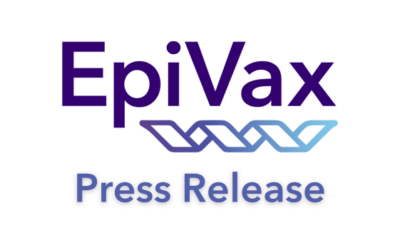In the pursuit of developing novel biologic entities, scientists harnessing the power of AI and generative biology depend on computational tools for predicting and managing immunogenicity risk – a critical characterization step in the candidate development process to ensure drug efficacy and safety in advance of clinical trials. Today marks a significant advancement in this endeavor with the publication of “In silico methods for immunogenicity risk assessment and human homology screening for therapeutic antibodies” in mAbs, which describes the ISPRI (Immunogenicity Screening and Protein Re-engineering Interface) toolkit, a web-based platform for in silico immunogenicity risk assessment of biologic therapeutics in preclinical development stages.
Developed over many years by EpiVax bioinformaticians, ISPRI provides researchers with a secure interface comprised of integrated computational tools that enable a systematic approach to streamline the assessment and mitigation of immunogenic potential and accelerate overall preclinical development efforts.
The tools, each of which play a critically important role in the assessment process, include: EpiMatrix for T cell epitope mapping, ClustiMer for the identification of epitope-dense regions that could be key to further testing/deimmunization, JanusMatrix for characterizing epitopes (the identification of potentially tolerated or actively tolerogenic epitopes, like Tregitopes), and OptiMatrix for sequence modifications to mitigate immunogenic risks.
Notably, the ISPRI tools can be applied at different stages of development, from early-stage discovery for a high-throughput screening of hits, to comprehensive assessment of a lead candidate in preparation for IND-filing and development of an Integrated Summary of Immunogenicity (ISI).
Further, the toolkit is useful for the screening of all biologic therapeutic modalities, from monoclonal antibodies to bi-specifics, multi-specifics, antibody-drug conjugates, enzyme replacement proteins, CAR-T, gene therapy products, and peptide drugs.
Annie De Groot, MD, CSO, emphasized the significance of ISPRI in advancing biologic therapeutics development, stating that: “ISPRI stands as a pivotal tool in the pursuit of safer, more effective biologic therapeutics, empowering researchers to navigate the complexities of immunogenicity with precision and confidence.”
About EpiVax:
EpiVax, a 26-year-old biotechnology company located in Providence, RI, is a leader in the field of immunogenicity assessment of biologics and vaccines. EpiVax partners with a global roster of companies, agencies, and academics to accelerate immunogenicity risk assessment by providing access to advanced computational immunology tools, like the ISPRI and iVAX toolkits, for investigations in a number of applications.
Press Contact:
Sarah Moniz, Associate Director of Business Development, EpiVax, Inc.

